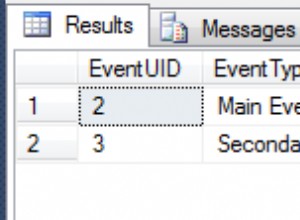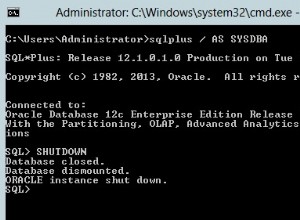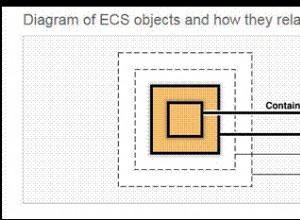आप regexp_substr का उपयोग कर सकते हैं (10g+):
SQL> SELECT regexp_substr('23|12.1| 450|30|9|', '[^|]+', 1, 1) c1,
2 regexp_substr('23|12.1| 450|30|9|', '[^|]+', 1, 2) c2,
3 regexp_substr('23|12.1| 450|30|9|', '[^|]+', 1, 3) c3
4 FROM dual;
C1 C2 C3
-- ---- ----
23 12.1 450
PL/SQL में लूप के साथ:
SQL> SET SERVEROUTPUT ON
SQL> DECLARE
2 p_tsv VARCHAR2(1000) := '23|12.1| 450|30|9|78|82.5|92.1|120|185|52|11';
3 l_item VARCHAR2(100);
4 BEGIN
5 FOR i IN 1 .. length(p_tsv) - length(REPLACE(p_tsv, '|', '')) + 1 LOOP
6 l_item := regexp_substr(p_tsv, '[^|]+', 1, i);
7 dbms_output.put_line(l_item);
8 END LOOP;
9 END;
10 /
23
12.1
450
30
9
78
82.5
92.1
120
185
52
11
PL/SQL procedure successfully completed
अपडेट करें
आप केवल 12 कॉलम हैं, मैं एक लूप के बिना सीधे क्वेरी लिखूंगा, यह गतिशील एसक्यूएल की तुलना में अधिक प्रदर्शन करने वाला और आसान होगा (लिखने के लिए असीम रूप से आसान नहीं है):
INSERT INTO your_table
(ID, month1, month2, month3...)
SELECT :p_id,
regexp_substr(:p_tsv, '[^|]+', 1, 1) c1,
regexp_substr(:p_tsv, '[^|]+', 1, 2) c2,
regexp_substr(:p_tsv, '[^|]+', 1, 3) c3
...
FROM dual;




